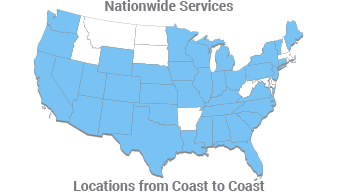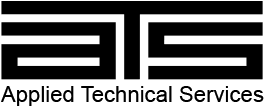- Home
- Services/IndustriesServicesindustries
- About Us
- LocationsStatesAccordion ContentAccordion ContentAccordion ContentAccordion Content
- Job Openings
- Quick Links
- ATS Family

PFAS in Consumer Products
Experts at ATS can identify PFAS in consumer products under new regulations in the U.S. and abroad. PFAS are a class of manufactured perfluoroalkyl and polyfluoroalkyl substances such as PFOA, PFOS, PFHxS, and PFNA. Introduced to American consumer products on a wide scale in the 1940s and 1950s, certain PFAS became ubiquitous due to their resistance to oil, water, and grease. Even today, PFAS are part of non-stick cookware, waterproof clothing, and stain-resistance treatments for rugs and carpets.
Other consumer products that may contain PFAS include:
- Accessories
- Adhesives
- Children’s products
- Cosmetics
- Dental floss
- Drinking water
- Electrical wire insulation
- Fertilizer
- Firefighting foams
- Food packaging
- Paints
- Rugs and carpets
- Sealants
- Shampoo
- Upholstery
- Varnishes
PFAS Contamination
While beneficial in waterproofing food containers and clothing, PFAS can also be dangerous. Pollution and waste have introduced PFAS to the environment. Today, these chemicals remain in soil, air, and water samples from around the world. The protracted degradation of PFAS has raised concerns with environmentalists and health specialists alike.
Scientists have detected PFAS in human blood and urine. Recent studies link PFAS to endocrine issues and even a raised potential for cancer. Animal studies indicate that bioaccumulative exposure to PFAS affects the liver, thyroid, and immune system, along with reproduction, growth, and development.
People can unknowingly inhale contaminated dust in the air or consume contaminated:
- Drinking water
- Wildlife
- Food touching cookware or packaging with a PFAS surface treatment
Regulation and Standard Compliance
As scientists uncover more information about PFAS and their effects on people, governing bodies worldwide have pushed for regulations. For instance, the European Union has taken steps to reduce and eventually eliminate the use of PFOS and PFOAs.
In the U.S., the Environmental Protection Agency (EPA) has urged for stronger regulation of PFOS and PFOA, particularly in drinking water. In late 2022, Environmental Protection Agency (EPA) proposed the designation of these two PFAS as hazardous substances according to the Comprehensive Environmental Response, Compensation, and Liability Act (CERCLA). The proposal will reach a vote in November 2022.
Limits and prohibitions on specific PFAS are gaining traction with lawmakers in several states. California, Maine, Oregon, Vermont, and Washington have laws that are currently effective. Additionally, Colorado, Connecticut, Hawaii, Maryland, Minnesota, and Rhode Island have passed laws due to take effect in the next three years.
As states pass new regulations impacting production and interstate commerce, ATS can align our services to the laws and standards that impact customers nationwide.
PFAS Testing
Research into the adverse effects of long-term exposure is ongoing, and ATS can support manufacturers, litigators, and other clients with assessing materials for regulated PFAS. Analysts at our labs can detect common PFAS in samples, then compare our findings to legal requirements.
ATS chemical analysts can tailor PFAS testing to ensure products follow international, federal, and state restrictions. Our chemical analysis lab provides LC/MS/MS testing to detect organic compounds at minute levels as small as parts per trillion (ppt).
Ion chromatography separates ions in liquid and solid samples to determine ion concentrations, characterization, and identification. ATS analysts often use this test for water analysis and quality control. Liquid chromatography also separates components in a compound or mixture. Analysts use liquid chromatography methods, such as high-performance liquid chromatography (HPLC), for component identification and characterization.
ATS can also perform first-article testing and provide support for litigation or insurance claims, where applicable.
About ATS
Founded in 1967 as a consulting engineering firm, ATS offers calibrations, inspection, and testing services nationwide. As a leading provider of customized testing services, ATS is committed to safe and rigorous product testing for industry, business, and legal clients.
Our Marietta super lab holds ISO/IEC 17025 accreditations to perform a variety of services in nondestructive, material, mechanical, chemical, calibrations, and electrical testing. We maintain Nadcap accreditation to perform nondestructive testing and materials testing disciplines, as well.
We are also a Consumer Product Safety Commission (CPSC) approved lab that regularly provides consumer product testing on children’s toys.
Contact Us
Call +1 (888) 287-5227 or complete the webform on this page for ATS to test for PFAS in consumer products.

Request Form
"*" indicates required fields
